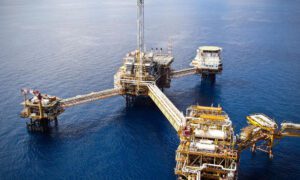
A fresh start: Welcoming 2024 with hope and optimism
As the much-anticipated year of 2024 begins, the atmosphere is filled with hope and excitement. The phrase “Happy New Year” resonates in every corner of the country, symbolizing the collective desire for a brighter future. The previous year, 2023, was marred by numerous challenges, making it a year to forget.
However, with President Tinubu, there is renewed optimism for positive change.
The year 2023 was plagued by security challenges, secessionist agitations, inflation, strikes, and social dysfunctions.
These issues disrupted daily life and hindered progress. It is crucial to acknowledge the pain and loss experienced by those who lost loved ones to senseless violence perpetrated by non-state actors and even deranged police officers. Their grief serves as a reminder of the urgent need for effective governance and security measures.
Nigerians, alongside the rest of the world, welcome the year 2024 with anticipation. This year holds immense importance for the country’s political, social, and economic development. Notably, the upcoming AFCON and Guber Elections will play a pivotal role in shaping the nation’s future.
These events have the potential to determine not only the direction of our society but also its stability and survival as a unified entity.
In 2023, Nigerians endured challenging times socially and economically, exacerbated by a political leadership characterized by incompetence, ineptitude, and a lack of understanding of the nation’s critical challenges. The hardships faced by the people underscore the urgent need for capable leadership and effective governance.
The challenges faced by Nigeria can only be overcome through competent leadership, effective governance, and a collective effort from all citizens. Let us remain hopeful and determined to build a better future for our nation, where peace, progress, and prosperity prevail..
The Nigerian government’s response to the nation’s economic downturn has been to engage in reckless borrowing, further exacerbating the already heavy national debt burden.
This short-sighted approach will undoubtedly burden future generations with an economy structured solely for debt repayment.
Nigeria is currently experiencing an unprecedented period of insecurity, with unknown gunmen, kidnappers, bandits, terrorists, and arsonists running rampant across the country.
These criminals are killing, raping, maiming, and abducting hundreds of helpless victims while burning down critical infrastructure. The government’s inability to curb this brazen criminality has left poor Nigerians wringing their hands in agony and near despair.
The government’s lack of transparency and integrity has not improved, with high-profile cases illustrating the extent to which the government has apparently turned a blind eye to the systematic stealing of the nation’s treasury.
The government’s failure to impose effective punitive sanctions on those responsible for these gargantuan heists suggests complicity. As we enter 2024, there is widespread anger, distress, discontent, fear, and apprehension in the land. This potentially explosive situation must be taken seriously by genuine leaders.
The Nigerian state is teetering on the edge of failure, its decline happening at an alarming pace. The signs of this deterioration are glaringly obvious in every corner.
Thus, those vying for leadership positions at all levels face immense challenges ahead. For Nigeria to survive as a united entity, its people must swiftly discard the shackles of narrow-minded ethnicity and religious prejudice that have held the country hostage for far too long.
Instead, they must courageously confront the task of constructing a modern democratic society, one that embraces individuals from diverse ethnic backgrounds and various religious beliefs.
This society should be built upon unwavering values and principles that cannot be compromised.If we are to safely traverse the threshold of 2024 and lay the groundwork for the Nigeria of our collective aspirations, Nigerians must unite as a single force and exorcise the demons of ethnic animosity, political hostility, religious intolerance, greed-driven acquisition, favoritism, and cronyism.
These negative forces have plagued us for far too long and now pose a grave threat to our very existence.Genuine national transformation cannot occur amidst widespread division, social unrest, and conflict.
The urgency of the times demands a profound shift in mindset at both the individual and collective levels.
As the dawn of 2024 approaches, let us abandon our corrupt and destructive political, economic, and social practices. Instead, let us summon the unwavering resolve to construct a modern democratic society founded on justice and fairness, integrity and transparency, a genuine concern for the common good, and selfless leadership. By doing so, we will set ourselves on the path towards the desired rejuvenation of our nation in the coming year.
With these sentiments in mind, Nigerian NewsDirect extends its heartfelt wishes for a joyous New Year to our esteemed readers and to all Nigerians.


